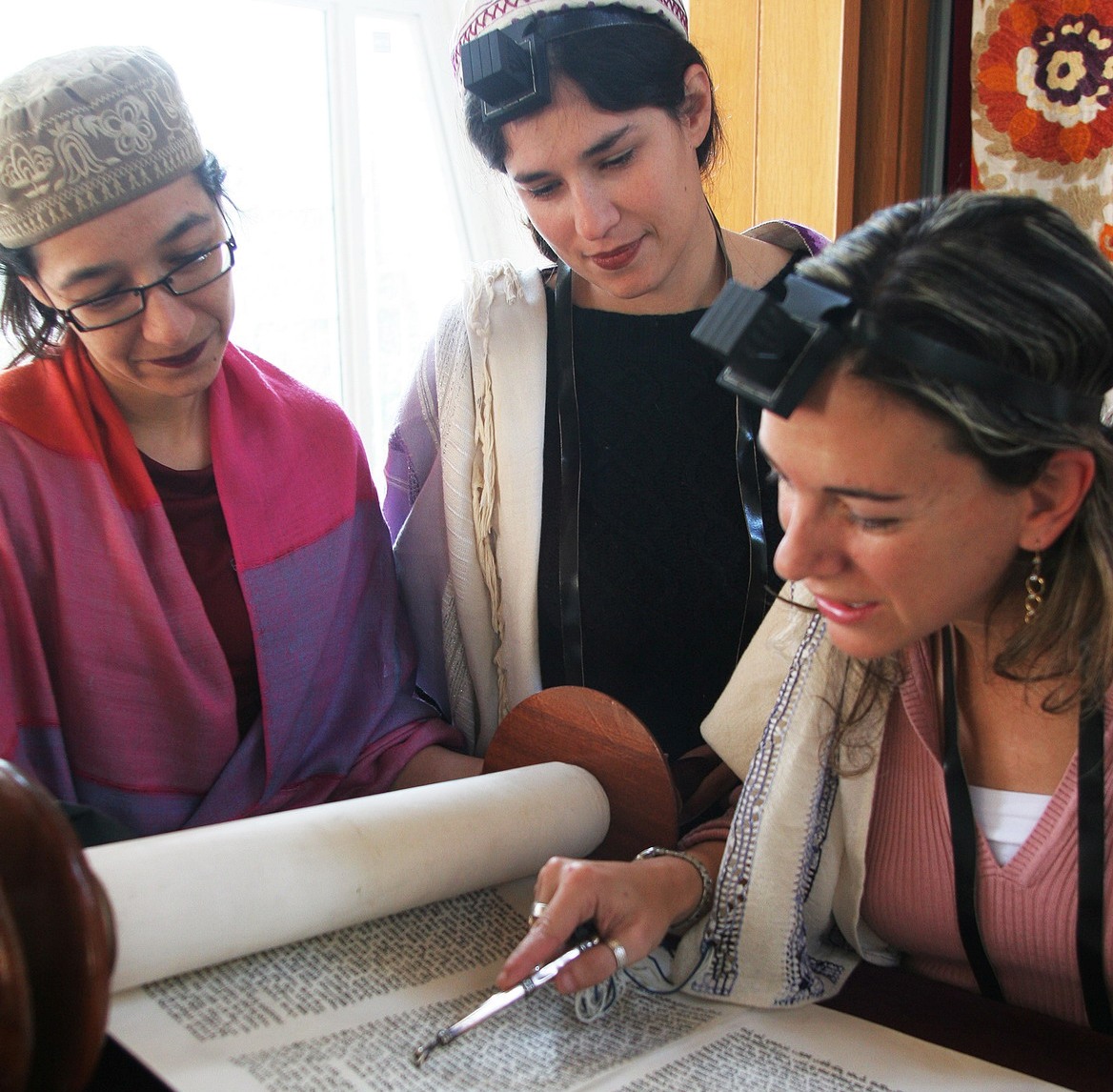I have always had a love-hate relationship with the Jewish laws and traditions pertaining to women. There are various accounts in Judaism where women are held in high esteem, and others where women are caught in a multitude of restrictions and placed in a position of subordination.
According to the Talmud (Genesis 2:22), women possess an inherent gift of intellectual power, referred to as binah, that has the potential to exceed that of men. Our matriarchs Sarah, Rivka, Rachel and Leah are even recognized for having built the Jewish nation with their binah, leading their families as beacons of spiritual truth and clarity. This same intuition came into play as women did not participate in the idolatry of the Golden Calf. What’s more, it exempts women from wearing kippot, because they don’t need a constant, physical reminder of their connection to God, like men do.
In the Jewish tradition, a variety of Jewish female leaders guide others both halachically and spiritually. Deborah the Prophetess, for example, was a very wise and learned woman who was accepted as an exemplary character and judge. Yet, Deborah was considered an exception, and among other stipulations, women have been discouraged from engaging in the same religious pursuits as men, in fear that it would interfere with their primary duties of being a wife and a mother.
Such beliefs have persisted in many circles of the Orthodox community to this day, culminating with the Rabbinical Council of America (RCA) unanimously passing a resolution on October 30th declining the recognition, ordination and hiring of women as members of the Orthodox rabbinate. The RCA passed a similar resolution in 2010, but Open Orthodoxy’s infrastructure has grown quite substantially in years since, evidenced by Yeshivat Maharat‘s decision to ordain female rabbis.
As one would anticipate in this day and age, the resolution sparked much controversy. To a degree, both sides offer legitimate perspectives. On the one hand, it is both questionable and aggravating that a group of men is in charge of legitimizing the Jewish experience of Jewish women. On the other hand, since male rabbis have been the norm for so long, the idea of a female Orthodox rabbi is difficult to envision.
The RCA’s argument is based on the notion that the community should keep with the “sacred continuity” and mesorah, or tradition, of the past. I imagine a bunch of Tevye’s, huddled together in a room singing “Tradition” from Fiddler on the Roof. Although tradition is undoubtedly a valuable component of Judaism, some traditions require some molding to fit within the modern world, and modern rabbis should be the first to recognize that.
The Halachot (Jewish laws) written by Maimonides played a significant philosophical role in the RCA’s decision. In the twelfth century, Maimonides declared that women should not be appointed to a communal position. Although Maimonides is undoubtedly one of the most influential and revered Jewish scholars of all time and his ideas merit consideration, he also believed that men should discourage their wives from leaving the house too often and explicitly listed the places they should be able to go. Granted, such a view did not deviate from the norm of twelfth century society, but the point remains that his authority on all subjects is not without question. Women leave the home freely these days, and the RCA presumably supports that, so why can they not hold communal positions, too?
Additionally, Rabbi Joseph Dov Soloveitchik, a significant Orthodox rabbi and Talmudist of the 20th century, wrote in his printed notes on Shulchan Aruch (Code of Jewish Law), section Yoreh De’ah, that a woman may not serve as a rabbi, based on a biblical injunction regarding discretionary power (Deuteronomy 17:15). But as Rabbi Hershel Schachter, one of his students, points out, the rabbis of the Talmud interpreted this verse to mean that women may not be appointed to the position of king. The fact that there are different interpretations implies that the principle is unclear.
In the resolution, the RCA also mentions that the “flowering of Torah study” by Orthodox women is a “significant achievement,” yet apparently not significant enough to gain the title of Rabba (female rabbi). In the resolution, the RCA even stated various communal positions that women may serve in, most of which are almost identical to the responsibilities of a rabbi. Thus, the title of Rabba is basically the only thing missing from the mix, but the symbolism of the title matters.
Frankly, Orthodox women should be given the title of Rabba. Ignoring more than half of the population when developing caring, spiritual and official leaders seems irrational — and is a disservice to the Orthodox community.
Despite this resolution, the ordination of women rabbis does not seem like it will necessarily stop. As Rabba Sara Hurwitz, dean of Yeshivat Maharat, told Haaretz, “The story of Orthodox women in our clergy today has already been written. Trying to write us out of the narrative is no longer an option.”

